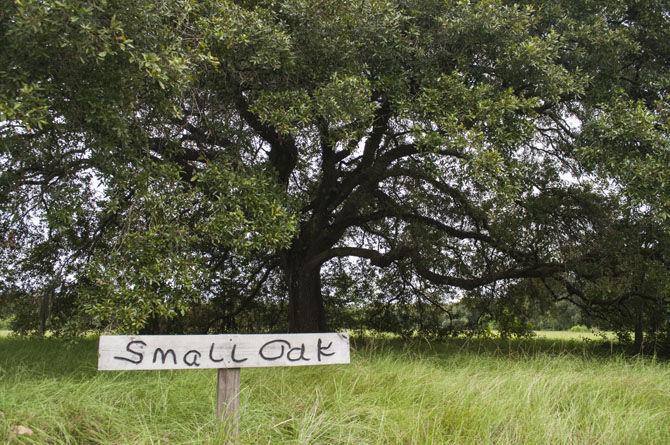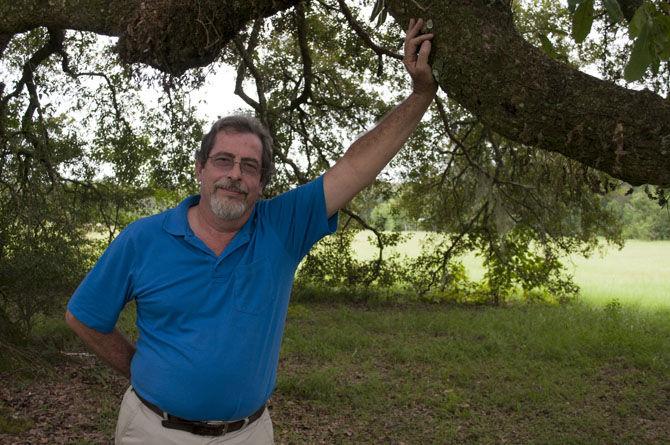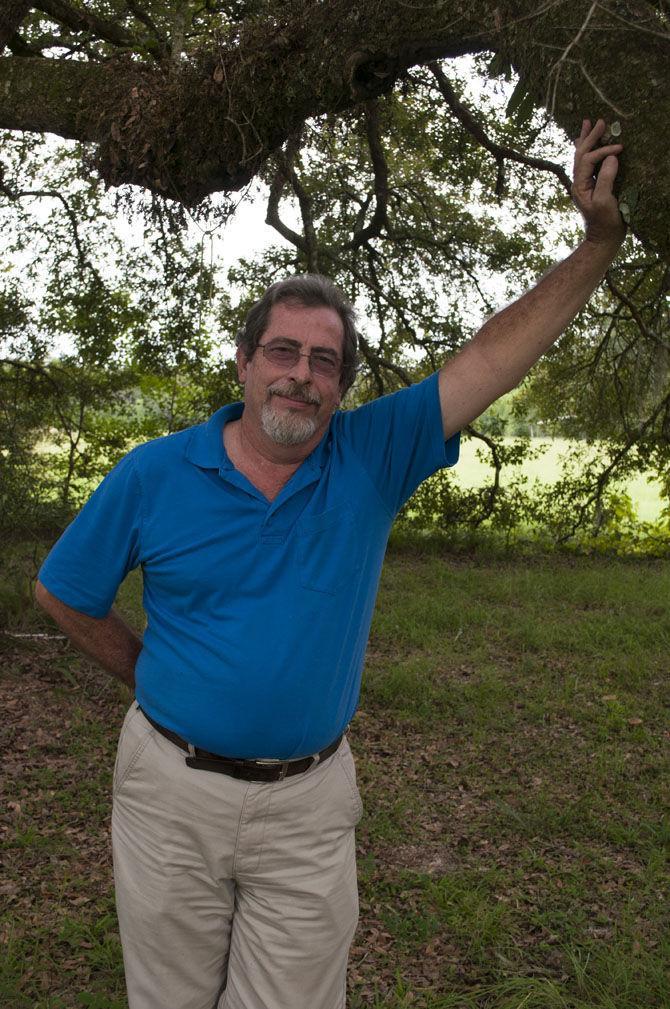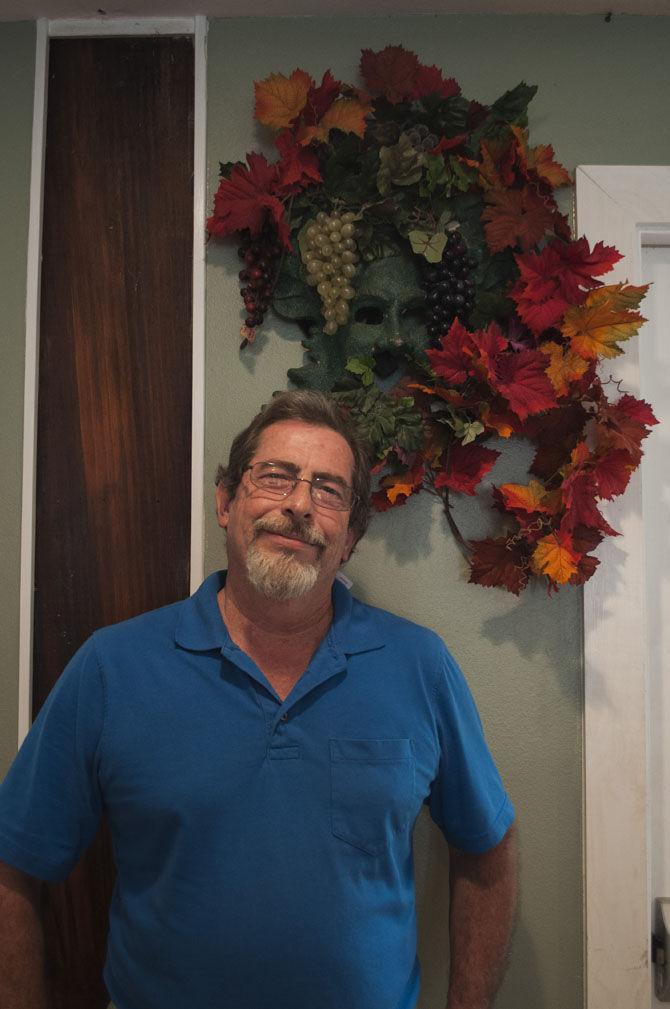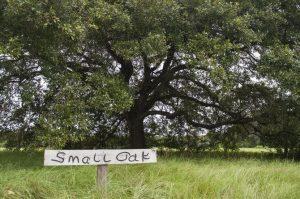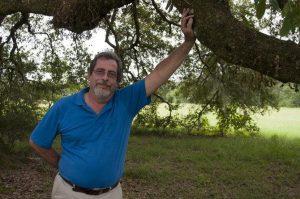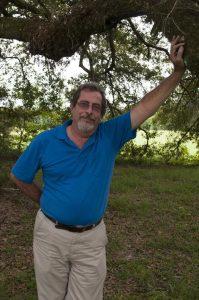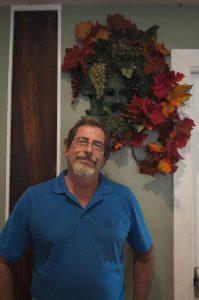A secluded retreat in the woods of Springfield, Louisiana, serves as the only known campground and outdoor recreation area for pagans in the state. While Louisiana has a long history of pagan teachings in the form of Voodoo, Santeria and Native American animism, many Louisiana residents remain perplexed by the beliefs of modern pagans.
“Okay — so we’re witches,” said Cliff Eakin, owner of Gryphon Campground and an eclectic Wiccan high priest. “But there’s more to it than that.”
Paganism encompasses a wide spectrum of beliefs, including reverence for ancient Greek, Celtic and Norse deities, Eakin said. Wicca is one of the more prominent pagan religions.
“We believe in honoring the seasons. We believe in honoring the cycle of life,” Eakin said. “We believe that men and women were created as equals — therefore the God, the energy, is both male and female and neither and both.”
After encountering San Antonio pagans during the late ‘80s, Eakin said he was inspired to study their religious texts. He found that the Wiccan religion resonated with him more than his former Baptist faith, and he decided to become one of the growing numbers of American pagans.
Eakin eventually settled in New Orleans, operating an occult store prior to Hurricane Katrina. After the storm destroyed the city, Eakin closed shop and said he recognized Louisiana’s need for a new space for pagans and others with alternative lifestyles.
“I wanted to have something more,” Eakin said. “That’s why I started this place. There wasn’t anything out here, no place where a pagan could feel safe to practice what they want, and this was like a calling to me.”
After acquiring property near Springfield in 2008, he established Gryphon Campground and a Wiccan church known as the Coven of the Gryphon on the site.
Locals’ immediate reaction was largely hostile, he said, and the campground still is targeted by vandals and thieves.
Attempts by local politicians and church groups to shut down the coven and campground were halted by the American Civil Liberties Union, efforts by the wider pagan community and the help of a pagan lawyer.
Local laws banning divination for pay also were challenged and overturned in 2008 as violations of religious rights.
When a child was abducted, Eakin said local Wiccans carried out a spell involving mirrors, candles and an effigy of the kidnapper to help law enforcement find the kidnapper’s location.
Eakin describes such magical spells and rituals as “symbolic prayer,” petitioning for an intervention.
Some pagans also use magic for more trivial purposes, such as boosting their luck playing roulette, he said.
“You hope to create a ripple in space-time … but really, you’re setting yourself up for whatever you want to do,” Eakin said. “If you set yourself up for a prosperity spell, you have to pursue it.”
Eakin advises caution when using magic, due to the unintended consequences Wiccans believe its use can have.
“There’s a lot of ethical [concerns] involved when it comes to spellwork,” Eakin said. “And magic does work.”
Wiccans abide by an ethical code known as the Wiccan Rede: “Do what you will, but harm none.”
Over the years, Eakin said society has come to be more tolerant of pagans.
“People only fear what they don’t understand,” Eakin said. “Fear fuels the fires of hatred.”
Local pagans seek religious rights
By Trent Parker
September 8, 2015
A pinnacle of the dragon, chalice and atheme, three ritual tools used for several spiritual purposes, are stored on Wednesday, Sept. 2, 2015, at Gryphon’s Nest Campground.





